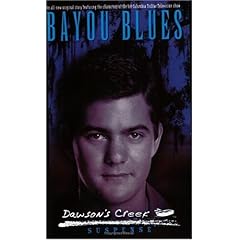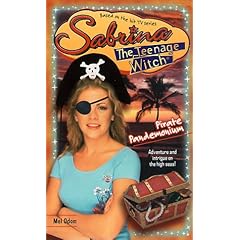I just finished the book I want to win the Printz. It’s sad and funny and bleak and full of love.
And it’s terrifying.
I haven’t been that interested in this year’s discussion. I loved
The Book Thief, of course, but I have a sneaking suspicion (based on my usual Oscar prediction methods) that
Octavian Nothing will get the prize. Librarians love M.T. Anderson, you see. And though I’ve read a lot of books I’ve loved over the past year (examples:
Nick and Norah’s Infinite Playlist,
King Dork,
Going Under),none of them really said Major Award Material. This has been much more a year for underground beloved books, those stories that you can imagine someone finding on their own (or with the help of a nice librarian, of course) and then feeling that deep kinship you feel with some stories.
Actually, what I loved about
Looking For Alaska winning last year was that for so many people, there is that deep personal connection with the story. Almost a secret connection, like when you find out other people love it too, you’re a little jealous at first, and then realize how much you must have in common with that other person, that you both love this story that you had previously thought of almost as some kind of secret. I think that’s in part why Tiff and I reference
Girl to each other so much.
(Of course, her laptop is making me listen to Fleetwood Mac right now…)
But anyway, back to the amazing, gorgeous, scary book I just finished. It’s called
Life As We Knew It and is by Susan Beth Pfeffer. I had been wanting to read it for awhile—just another new book I was nice enough to let a patron check out before me at my last library that hadn’t shown up at my new library until this morning, when I spotted it on my way to yet another training session.
Yes, I started and finished this today. You know I read fast and have no willpower.
When the book opens, Miranda’s family is pretty standard small town Eastern Pennsylvania bleeding heart liberal. Her dad lives further east; her brother’s at Cornell. Her two best friends are completely wrapped up in their own 16yrold identity crises.
One May night, everyone who can see it looks up at the sky to watch an asteroid hit the moon.
The astronomers miscalculated density. The moon is bigger, closer than it used to be. The disasters start with things that are affected by the moon’s gravitational pull: huge tsunami waves take out coasts and islands. Having a huge body closer to the earth begins to mess with its core and magma comes out of all sorts of long-dormant volcanoes. And then there’s the other stuff, too: the food shortages, the fatality of the flu when there are no hospitals and no one’s had a proper meal, the scariness of being an independent American teenage girl when law starts to break down.
The thing that’s really disturbing about this book is how plausible it all is. I mean, not the moon-going-out-of-orbit part, but the chain of events. The mother, an avid gardener, is heartened by thoughts that she’ll be able to grow food until ash from the volcanoes starts blanketing and first frost hits in August. Girls who, pre-disaster, used older boys’ attraction to them to dream about leaving their small town and maybe get free booze now leave town with forty year old men, bartered from their parents by a dowry of bottled water and canned soup.
It’s strange—so much of the middle of this book is about the constricting of worlds when disaster strikes. This formerly generous, giving-to-strangers kind of family tightens into itself. The mother eats less so her children can remain strong, but gets angry at her daughter for forgoing an earlier place in a food line so she can tell a friend.
Is it just a pet peeve of mine, or can I call this the author’s commentary on how much of our country has become “Screw them; I’ve got mine”?
The end is very much about the family (and not horribly tragic, I’m sure many of you will be happy to hear), but it’s the Christmas Eve that struck me the most. Christmas itself would be familiar to any of you who are former Laura Ingalls Wilder fans like myself: in secret, everyone has been hoarding little things for months, just to be sure they have a Christmas.
But on Christmas Eve, all huddled near the woodstove this family is incredibly lucky to have, they hear something outside. Their neighbors have come caroling.
Sometimes, a story has a moment that just sticks with you, no matter where the rest of the book goes. Franny crying in a public bathroom stall. The Jewish wrestler painting his story on whited-over sheets of Nazi propaganda. I have a feeling the caroling episode is going to join them.






























